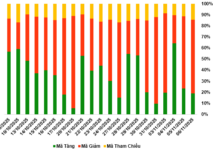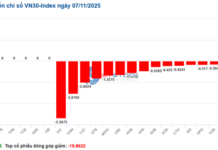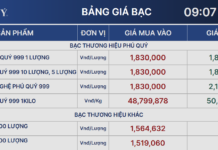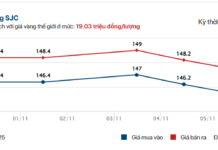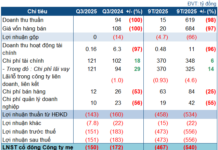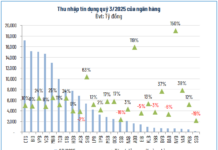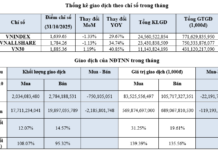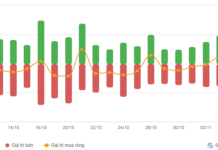The Ministry of Construction is seeking public input on a draft decree to replace Decree 94/2024/NĐ-CP, focusing on the housing information system and real estate market. A key highlight is the requirement for individuals to provide home ownership details starting in 2026, which will be integrated into the national database.

The Ministry of Construction believes this new regulation will enhance data quality and promote market transparency.
According to the draft, both organizations and individuals in Vietnam and abroad must provide data including identification details (name, ID number, legal documents), property information such as property type, address, area, quantity, ownership duration and form, and legal status.
In an interview with Tiền Phong, Dr. Phạm Viết Thuận, Director of the Institute of Natural Resources and Environment Economics in Ho Chi Minh City, expressed that the Ministry of Construction’s draft on housing declaration is impractical from a state management perspective.
If the digitization of property assets aims to facilitate real estate transactions via platforms to combat fraud and stabilize property prices, it misaligns with the goal of digitizing information about housing and land plots currently being updated by the Ministry of Agriculture and Environment within 90 days.
Currently, land statistics and management are conducted by plot and map sheet, led by the Ministry of Agriculture and Environment in collaboration with the Ministry of Public Security for data cleansing. The primary objective of land management is to oversee data from land plots, sheet numbers, and plot numbers, rather than from houses on the land.

To digitize legal assets on land, the Ministry of Construction should collaborate with the Ministry of Agriculture and Environment to extract data from local databases.
“The most critical step now is to integrate land plot and map sheet statistics into citizen ID cards, as previously proposed by the Institute of Natural Resources and Environment Economics to the Government. The national database, including land plots and map sheets, is the most vital data. Therefore, the Ministry of Construction’s attempt to manage housing ownership information is unfeasible due to overlapping responsibilities,” said Mr. Thuận.
According to the Director of the Institute of Natural Resources and Environment Economics, it is currently impossible to compile housing data because Vietnam has dozens of different housing types. These include temporary houses, unauthorized or improperly permitted houses, houses with or without deeds, disputed houses, and unclaimed houses. Building a residential database based on housing will lead to duplication, inaccuracy, and overlap among agencies.
“It’s impossible to rely on houses for residential data as per the Ministry of Construction’s draft. Therefore, residential data must be centralized under one authority: the Ministry of Agriculture and Environment, which is already managing unified land data. The Ministry of Construction should focus more on permit-free construction and guidelines for registering housing on digital platforms linked to plot data, rather than compiling housing statistics. Centralizing efforts and then coordinating related matters would be more logical,” Mr. Thuận suggested.
To digitize legal assets on land, Mr. Thuận believes the Ministry of Construction should collaborate with the Ministry of Agriculture and Environment to extract data from local databases based on boundary maps and plots, which will provide comprehensive land and housing information, including the owner’s citizen ID. Requiring citizens to declare housing as per the draft lacks scientific basis in the era of data digitization under Resolution 57/2025 of the Politburo.
The CEO of a real estate company in Ho Chi Minh City noted that the Ministry of Construction’s proposal overlaps with the work of the Ministry of Agriculture and Environment and the Ministry of Public Security, which are already developing a land database.
Additionally, local authorities and land management agencies have recently asked citizens to provide land deed information, raising concerns about data duplication among land management agencies, local governments, and the Ministry of Construction. Citizens often have to provide similar information when registering land, obtaining deeds, or updating ownership changes. If the Ministry of Construction proceeds with separate declarations from 2026 without a data integration mechanism, it will increase administrative burdens and fragment the national database.
“The Ministry of Construction’s requirement will cause data duplication and increase administrative burdens, as information like names, IDs, addresses, area, and legal status is already in the land, population, and tax databases,” the CEO stated.
Previously, the Department of Land Management under the Ministry of Agriculture and Environment issued guidelines for localities to rectify land databases according to the two-tier administration post-merger and assign plot IDs in areas with cadastral data. The process for creating plot IDs involves four steps: identifying plot features, converting coordinates from Vietnam’s system to the international system, encoding feature positions, and updating the spatial plot database.
Proposed Mechanism for Real Estate Price Regulation by the Ministry of Construction
The Ministry of Construction has introduced a series of market regulation measures, including a resolution on mechanisms to monitor and control real estate pricing.
Proposed Property Ownership Declaration: Is It Feasible Without a Ready Data Infrastructure?
Experts suggest that the proposal to declare home ownership will enhance market transparency, providing a foundation for management, taxation, and policy planning. However, concerns arise regarding its feasibility, as the current data infrastructure is not yet prepared to support such an initiative.


